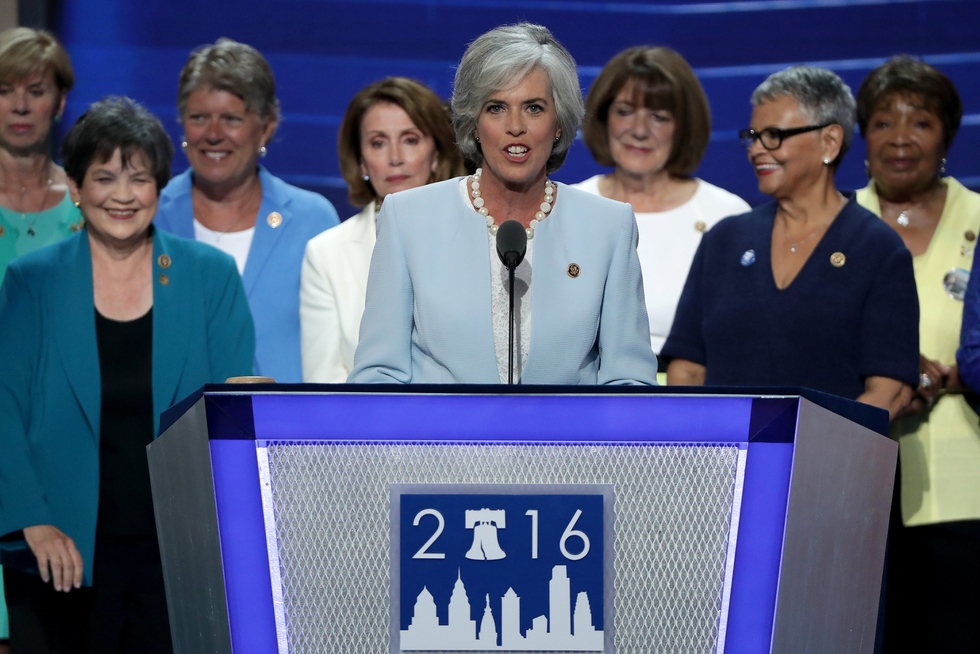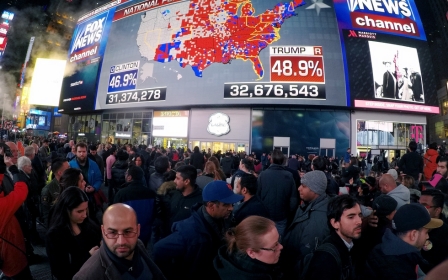US politician tackles Trump conflicts of interest with new bill

As president-elect Donald Trump continues to hold meetings with foreign leaders and businessmen from his hotels in New York and DC, a Democratic congresswoman has introduced legislation aimed at eliminating financial conflicts of interests for the incoming administration.
Katherine Clark, a Democratic representative from Massachusetts, has sponsored "The Presidential Accountability Act" that would require the president and vice-president to place their financial assets into a blind trust and enforce public disclosure on when they institute policies that affect their businesses.
“The president of the United States has the power to affect how our tax dollars are spent, who the federal government does business with, and the integrity of America’s standing in a global economy,” said Clark in a press release.
“Every recent president in modern history has taken steps to ensure his financial interests do not conflict with the needs of the American people. The American people need to be able to trust that the President’s decisions are based on the best interests of families at home, and not the President’s financial interests,” it read.
As of yet, the president of the United States does not have to remove himself from his financial interests, according to a recent report published by the Congressional Research Service.
“Consequently, there is no current legal requirement that would compel the president to relinquish financial interests because of a conflict of interest,” read the report.
Trump has held foreign dignitaries in his hotel since he won the election two weeks ago. According to the Toronto Star, a Canadian publication, around “100 foreign diplomats, from Brazil to Turkey, gathered at the Trump International Hotel this week to sip Trump-branded champagne, dine on sliders and hear a sales pitch about the US president-elect’s newest hotel”.
He also reportedly asked the president of Argentina to expedite the permit process for an office building in Buenos Aires.
And in this past weekend, Trump met with three Indian businessmen to discuss a Trump luxury apartment complex in Mumbai.
These kinds of meetings raise ethical questions on whether he will use his power to strengthen his businesses.
“The temptation and the inclination will certainly be there,” said Arturo Sarukhan, a former Mexican ambassador to the United States. “Some might think it’s the right way to engage, to be able to tell the next president, ‘Oh, I stayed at your hotel.’ If I were still in government I would discourage it, among other reasons, because it can be questioned and looked at in a very poor light, as though you are trying to buy influence via a hotel bill.”
The president-elect and his administration have repeatedly denied accusations that a Trump administration would create conflicts of interests.
Reince Priebus, Trump's chief of staff, told CNN: "Donald Trump has been very clear from the very beginning that his family is very important to him. And I think that while it’s unique, it’s certainly compliant with the law. And obviously we will comply with all of those laws, and we will have our White House counsel review all of these things, and we will have every 'i' dotted and every 't' crossed, and I can assure the American people that there wouldn’t be any wrongdoing, or any sort of undue influence, over any decision-making."
Regardless of whether Clark’s bill gets passed or not, diplomats see Trump's properties as a way to curry favour with the new president.
“Why wouldn’t I stay at his hotel blocks from the White House, so I can tell the new president, ‘I love your new hotel!’ Isn’t it rude to come to his city and say, ‘I am staying at your competitor?’” an Asian diplomat told the Toronto Star.
Middle East Eye propose une couverture et une analyse indépendantes et incomparables du Moyen-Orient, de l’Afrique du Nord et d’autres régions du monde. Pour en savoir plus sur la reprise de ce contenu et les frais qui s’appliquent, veuillez remplir ce formulaire [en anglais]. Pour en savoir plus sur MEE, cliquez ici [en anglais].




